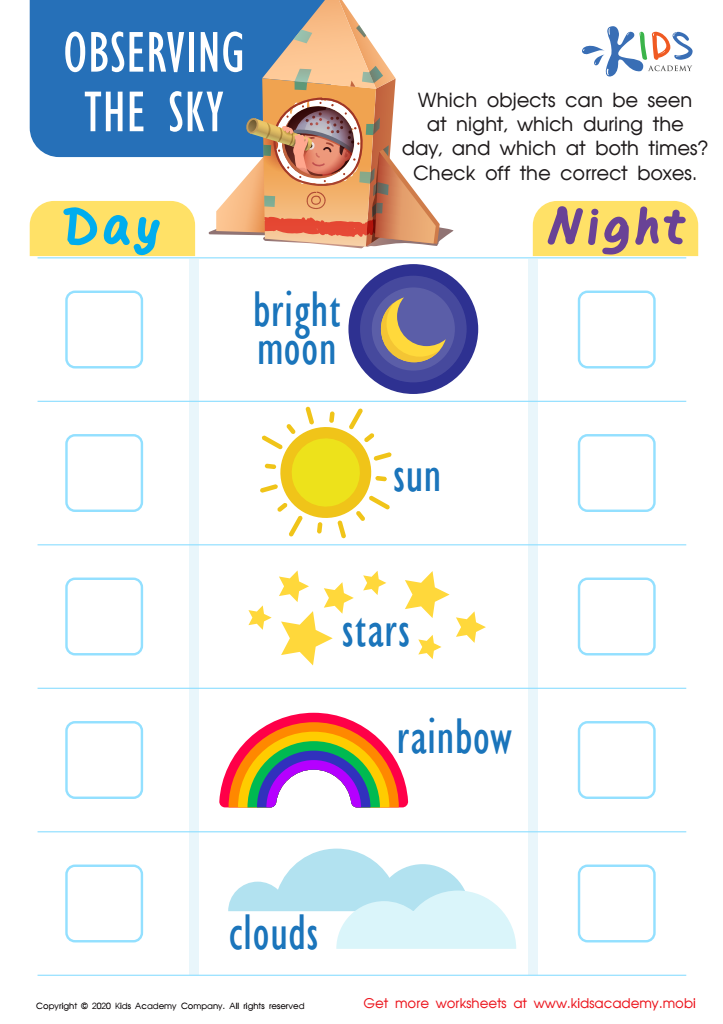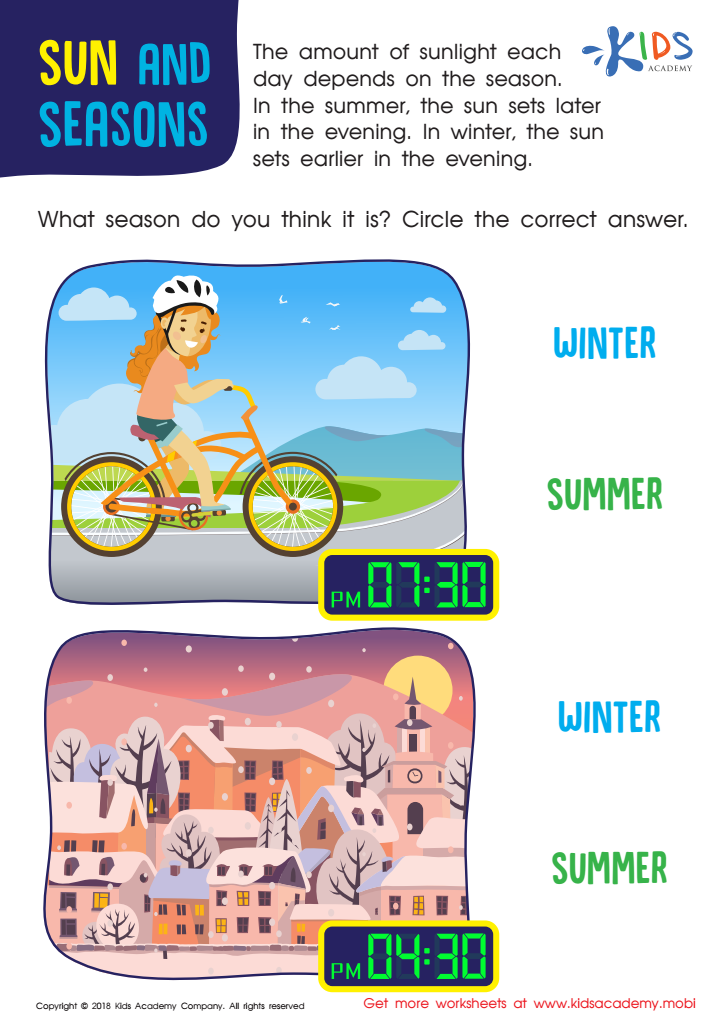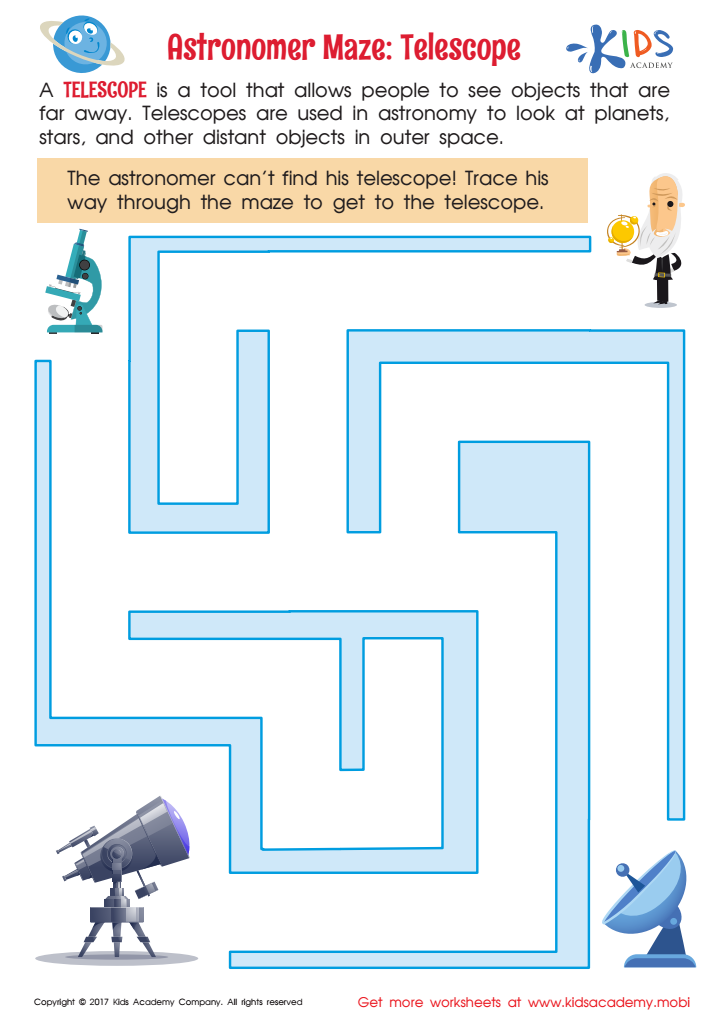Basic astronomy knowledge Normal Science Worksheets for Ages 4-6
3 filtered results
-
From - To
Introduce your little stargazers to the wonders of the universe with our "Basic Astronomy Knowledge Normal Science Worksheets for Ages 4-6." Designed for curious young minds, these engaging worksheets cover essential astronomy basics, including the solar system, moon phases, and star identification. Each activity is crafted to be both fun and educational, helping children develop foundational science skills and a lasting interest in space exploration. Complemented by colorful illustrations and simple explanations, our worksheets make it easy for young learners to grasp complex concepts while sparking their imaginations and curiosity about the cosmos.


Observing the Sky Worksheet


Sun and Seasons Worksheet


Astronomer Maze: Telescope Worksheet
Introducing basic astronomy to young children ages 4-6 is both beneficial and essential for their cognitive and personal development. At this age, children are naturally curious and eager to explore the world around them, including the vast expanse of the sky. By teaching them about astronomy, parents and teachers harness this innate curiosity to foster a sense of wonder and excitement about science and the broader universe.
Firstly, basic astronomy lessons help build foundational scientific skills. Young children learn to ask questions, make observations, and develop critical thinking abilities. For instance, observing the phases of the moon or the changing positions of stars can encourage children to make simple predictions and understand cycles in nature, establishing early concepts of scientific investigation.
Secondly, exposure to astronomy broadens a child's perspective and nurtures a lifelong appreciation for learning. When children grasp that the Earth is part of a larger solar system within a vast universe, it instills a sense of awe and respect for the natural world. This can promote curious, open-minded attitudes as they grow, enhancing their academic growth and enthusiasm across all subjects.
Lastly, early exposure to complex concepts in a simple, engaging manner can help demystify science and break down potential barriers children might face as they advance in their education. With fun, age-appropriate activities, children gain confidence in their ability to learn and understand new topics, paving the way for future academic success.
 Assign to My Students
Assign to My Students















